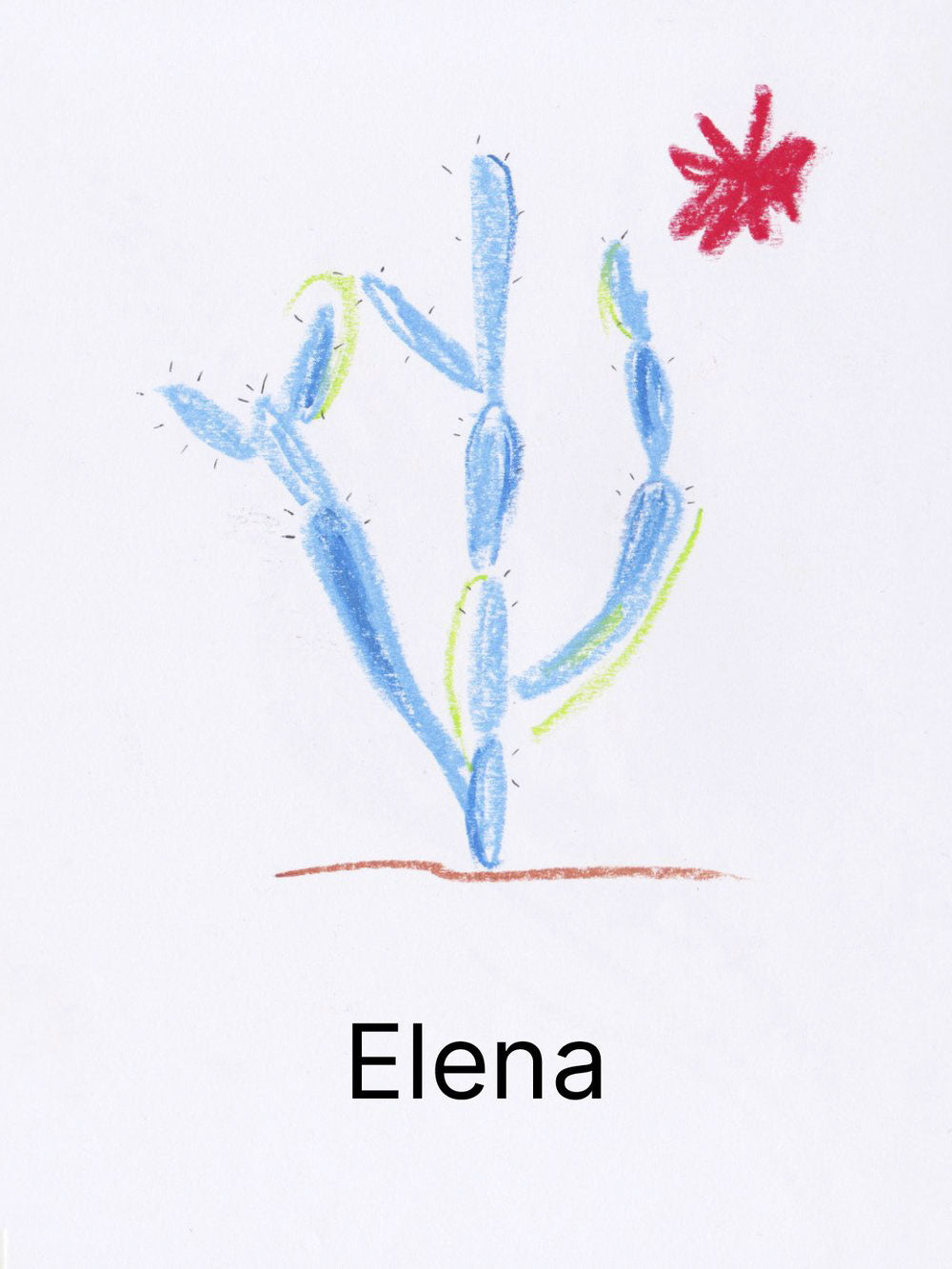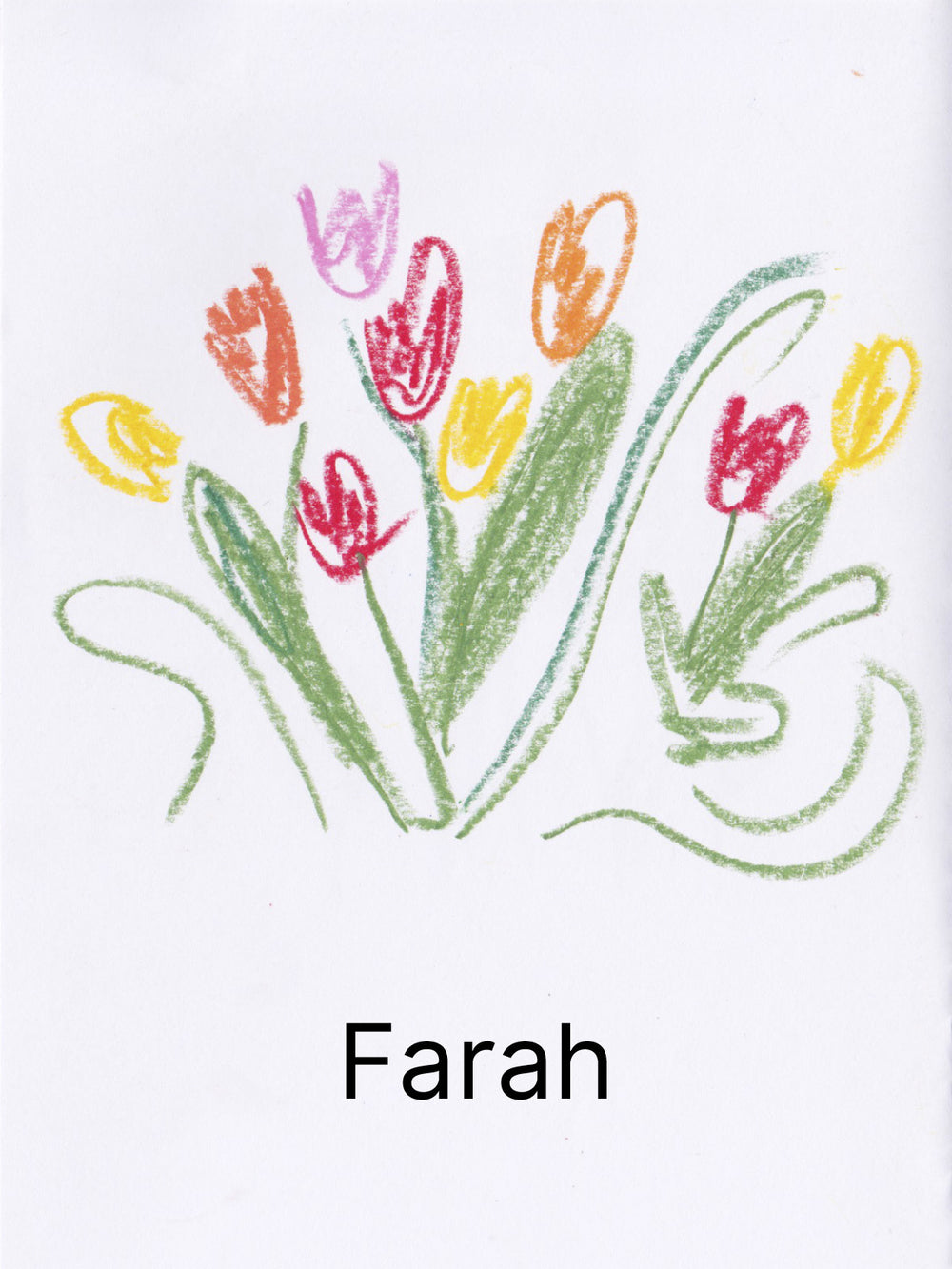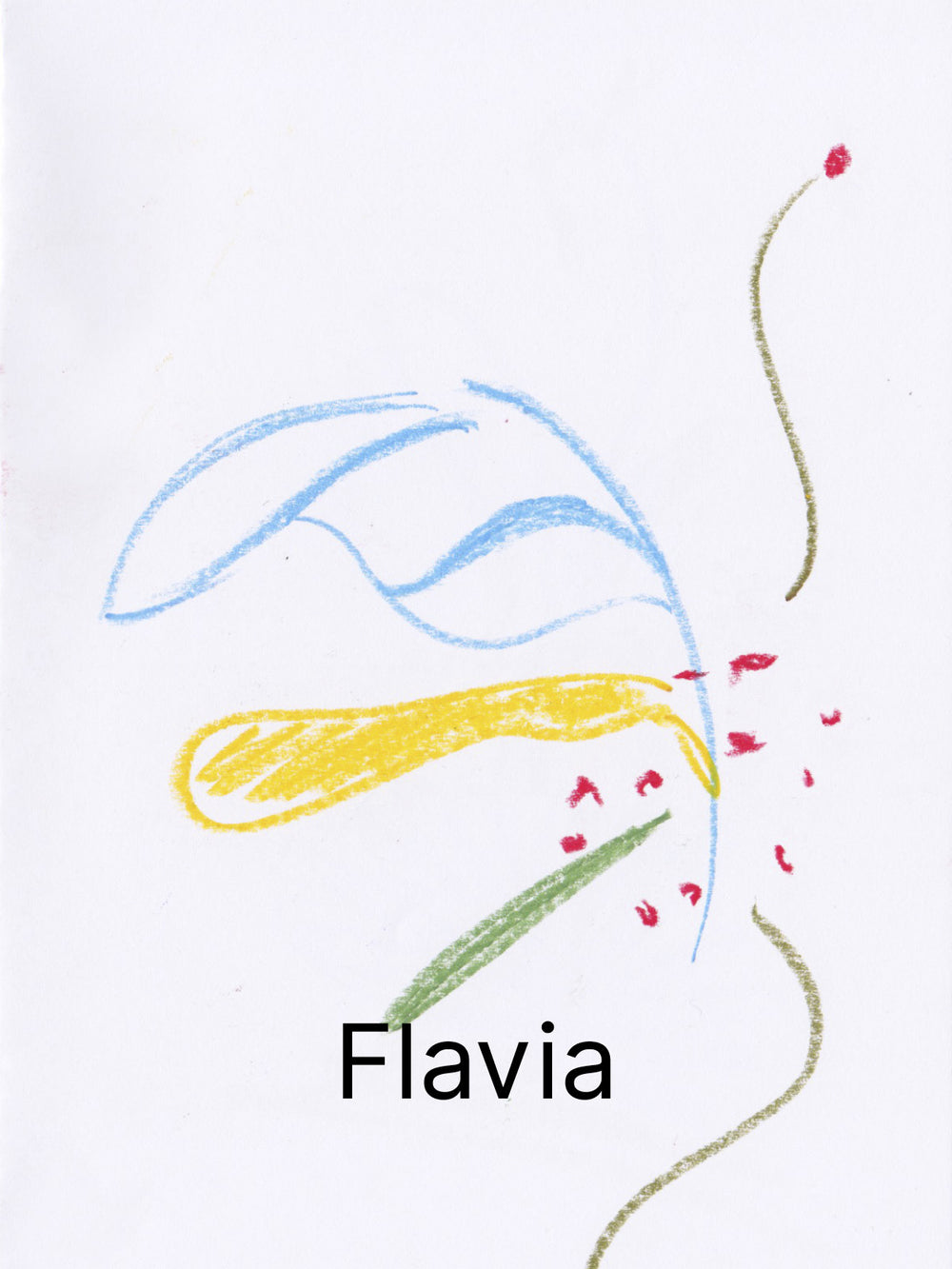Big Small Talks
Elena Ceccacci

Elena has been suggested by Livia. As soon as Livia mentioned the possibility of interviewing Elena I was enthusiastic but now that I find myself writing her interview I feel great difficulty because the truth is that I do not know anything about biology, let alone the work she does at the Umberto Foundation Veronesi. I'm sure it will be an inspirational interview.
instagram.com/heleeene
Tell me what your job consists of.
I work as bioinformatics at the Oncological Institute of Milan and I am in particular dealing with the analysis of data coming from experiments on the genome and on the epigenome. In general, to explain it, I ask everyone if they have seen Gattaca, a 1997 film set in a future in which technology and knowledge of genetics allow simply through DNA sequencing (ie the determination of the order of the famous ATCG on DNA ) to obtain all the information possible on a person: from illness, to character up to physical and intellectual capacity, with implications ranging from not being able to aspire to the work of their dreams to bring Uma Turman to wonder if "it's worth" to go out with the protagonist. Clearly, in reality, it is not really that way. It is true that potentially DNA contains all the information, but it is also true that we do not yet know how to interpret much of this information and, above all, the level of complexity is increased by how this information is read and translated into the cellular machinery by numerous factors epigenetic. Just think of our cells, each contains the same DNA but specializes differently or twins, who share the same DNA, but often become very different from each other. Our DNA is a bit like Grandma's recipe book, it is handed down and contains everything. Epigenetic, on the other hand, are billions of post it, sheets and annotations that tell us where to read and how to adapt recipes. All this information is the famous "Big Data" and here comes the computer part of my profession. Big because we speak of really high numbers, just think that the number of human genes is almost of thirty thousand, and it is, therefore, necessary to use computational approaches to analyze them and extrapolate results. My job is to write codes and programs to obtain the information we are looking for from this huge amount of data.
Elaboration and data calculations that are used for research. Is there a research that is particularly close to your heart that you are working on and that you can share with me?
There are two projects that we have been carrying out since I entered the lab in the thesis phase, more or less five years ago, and that are very close to my heart. One is a bit of a challenge from the point of view of data analysis because it starts from a different approach: while normally science is based on the analysis of differences and changes, in this case, we want to show that certain cells do not suffer changes in the transition from one state to another. It is strange to think of it but to demonstrate for once the absence of differences has proved to be a far more complex undertaking than we thought. The other is the project on which I made my doctorate, which has had so many twists, problems, and related resolutions that, now that we are close to publication, my colleague and I find it hard to believe. Fingers crossed.
Livia told me to ask you what it is like to work in an environment where you are the only woman, tell me about it.
When I moved to Milan to do the thesis with a well-known professor of bioinformatics, in his laboratory there were only men, computer scientists. I remember that at first, they looked at me as if I were an alien to be from Rome and to be a woman. Later I moved to the laboratory where I am now, mostly men here too. It is not always easy and I often wonder if I have returned to kindergarten and the answer is yes.
I read in the European code against cancer that we should consume many and various whole grains, legumes, fruits, and vegetables. We should limit high-calorie foods (foods rich in sugars or fats) and avoid sugary drinks. Finally, we should avoid the preserved meat, limit the consumption of red meat and foods with high salt content. I guess, to say it in simple terms, that by doing the opposite we could feed cancer. What is your thought? Do you think that food influences diseases?
All these things are as true as they are. Surely food has an influence on diseases as well as the environment, genetic predisposition, and many other factors. But man is made to eat everything, obviously in a balanced way and limiting excesses. Completely eliminating something from the diet does not always have positive effects. Today, food and non-food have become an uncontrollable phenomenon, unfortunately, condemned by a lot of bad information and alarmism. The miraculous vegetables and the food to avoid like a disease will come out every year. Carbohydrates yes, carbohydrates no. Everyone feels he can say his. You have to take everything with pliers. Balance is a relationship between many elements, not necessarily found in their reduction.
What have you changed your mind about in the past two years?
It is not an easy question. I think I've changed my mind about letting go. I have always considered it a defeat, but it is often energy saving.
You have a house full of plants, I have received a detailed description of the quantity and variety of species that you have. Do you do it for passion or are there other reasons that push you to do it? Can you tell me five things to do to make plants live in apartments?
No specific reason except a great passion, born relatively late, when I moved to the attic where I still live, small and with two tiny little balconies too. I filled it with plants and I continue to do so, so much so that my friends are always worried that I die in my sleep due to lack of oxygen. I am fascinated by their remarkable variety, the most diverse forms, their incredible strength hidden behind the look instead incredibly fragile.
One advice is enough: love them, they think about the rest.
Do you have rituals that help you feel confident about yourself?
No, recommend me one.
What would you write on a billboard in the middle of your city?
Who cares?
7 Small Talks
- Your daily uniform: jeans and a t-shirt/sweater and a scarf for almost ten months a year
- The song of the heart: I do not have any, it varies on periods
- Your perfume: no perfume
- Favorite flowers: buttercups of all colors and peonies
- Your comfort food: pizza and ice cream
- Your favorite city: I have two cities in the heart, Rome, and Naples
- A friend of yours to interview? What should I ask? Greta Scarpa, I met her through a mutual friend and we immediately loved each other. She works in the art world and at the moment is following various projects including Not Peripheral Project. She is a splendid and magnetic person. Ask them how you can switch from hating cats to having a Bengal cat she constantly talks about.
Elena è stata suggerita da Livia. Appena Livia mi ha accennato la possibilità di intervistare Elena ne sono stata entusiasta ma ora che mi ritrovo a scrivere la sua intervista mi sento in difficoltà perché la verità è che io non so nulla di biologia e tantomeno del lavoro che lei potrebbe svolgere alla Fondazione UmbertoVeronesi. Sono sicura sarà una intervista di grande ispirazione.
instagram.com/heleeene
Spiegami in cosa consiste il tuo lavoro.
Lavoro come bioinformatica all’Istituto Oncologico di Milano e mi occupo in particolare dell’analisi di dati provenienti da esperimenti sul genoma e sull’epigenoma. In genere, per spiegarlo, chiedo a tutti se abbiano visto Gattaca, un film del 1997 ambientato in un futuro in cui la tecnologia e la conoscenza della genetica permettono semplicemente tramite il sequenziamento del DNA (ovvero la determinazione dell’ordine delle famose ATCG sul DNA) di ottenere tutte le informazioni possibili su una persona: dalle malattie, al carattere fino alla capacità fisica e intellettuale, con risvolti che vanno dal non poter aspirare al lavoro dei propri sogni al portare Uma Turman a chiedersi se “vale la pena” uscire col protagonista. Chiaramente nella realtà non è propriamente così. E’ vero che potenzialmente il DNA contiene tutta l’informazione, ma è anche vero che non sappiamo ancora interpretare molta di questa informazione e, soprattutto, il livello di complessità è accresciuto da come questa informazione viene letta e tradotta nel macchinario cellulare da numerosi fattori epigenetici. Basti pensare alle nostre cellule, ciascuna contiene lo stesso DNA ma si specializza diversamente o ai gemelli, che condividono lo stesso DNA, ma spesso diventano ben diversi l’uno dall’altro. Il nostro DNA è un po’ come il ricettario della nonna, si tramanda e contiene tutto. L’epigenetica invece sono i miliardi di post it, fogli e annotazioni che ci dicono dove leggere e come adattare le ricette. Tutte queste informazioni sono i famosi “Big Data” e qui entra in gioco la parte informatica della mia professione. Big perchè parliamo di numeri davvero elevati, basti pensare che il numero di geni umani è nell’ordine dei trentamila, ed è necessario perciò utilizzare approcci computazionali per analizzarli ed estrapolare dei risultati. Il mio lavoro consiste nello scrivere codici e programmi per ottenere da questa enorme matassa di dati le Informazioni che cerchiamo.
Elabori e calcoli dati che servono per fare ricerche. C'è una ricerca che ti sta particolarmente a cuore su cui stai lavorando e che puoi condividere con me?
Ci sono due progetti che portiamo avanti da quando sono entrata nel laboratorio in fase di tesi, più o meno cinque anni fa, e che mi stanno molto a cuore. Uno è un po’ una sfida dal punto di vista dell’analisi dei dati perché parte da un approccio diverso dal solito: mentre normalmente la Scienza si basa sull’analisi delle differenze e dei cambiamenti, in questo caso vogliamo dimostrare che determinate cellule non subiscono cambiamenti nel passaggio da uno stato all’altro. È strano pensarlo ma dimostrare per una volta l’assenza di differenze si è rivelata un’impresa molto più complessa di quanto credessimo. L’altro è il progetto sul quale ho fatto il dottorato, che ha avuto talmente tanti colpi di scena, problematiche e relative risoluzioni che, ora che siamo vicini alla pubblicazione, io e il mio collega stentiamo a crederci. Fingers crossed.
Livia mi ha suggerito di chiederti com’è lavorare in un ambiente in cui sei l’unica donna, me lo racconti?
Quando mi sono trasferita a Milano per poter fare la tesi con un noto professore di bioinformatica, nel suo laboratorio c’erano solo uomini, informatici. Ricordo che all’inizio mi guardavano come fossi un'aliena per essere di Roma ed essere donna. In seguito mi sono trasferita nel laboratorio dove sono ora, uomini anche qui. Non sempre è facile e spesso mi chiedo se sono tornata all’asilo e la risposta è sì.
Ho letto sul codice europeo contro il cancro che dovremmo consumare molti e vari cereali integrali, legumi, frutta e verdura. Dovremmo limitare i cibi ad elevato contenuto calorico (alimenti ricchi di zuccheri o grassi) ed evitare le bevande zuccherate. Infine dovremmo evitare le carni conservate, limitare il consumo di carni rosse e di alimenti ad elevato contenuto di sale. Immagino, dicendolo in parole povere, che facendo il contrario potremmo alimentare il cancro. Qual è il tuo pensiero? Ritieni che l'alimentazione influisca sulle malattie?
Tutte queste cose sono tanto vere quanto no. Sicuramente il cibo ha un’influenza sulle malattie così come anche l’ambiente, la predisposizione genetica e tanti altri fattori. Ma l’uomo è fatto per poter mangiare tutto, ovviamente in maniera equilibrata e limitando gli eccessi. Eliminare del tutto qualcosa dalla dieta non sempre ha degli effetti positivi. Oggi il cibo e il non-cibo sono diventati un fenomeno incontrollabile, condito purtroppo da tantissima cattiva informazione e allarmismo. Ogni anno spunta la verdura miracolosa e il cibo da evitare come la peste. Carboidrati si, carboidrati no. Ognuno si sente di poter dire la sua. Bisogna prendere tutto con le pinze. L'equilibrio è un rapporto tra tanti elementi, non per forza lo si trova con la loro riduzione.
Su cosa hai cambiato idea negli ultimi due anni?
Non è una domanda facile. Penso di aver cambiato idea sul lasciar perdere. L’ho sempre considerato una sconfitta, invece spesso è risparmio di energie.
Hai la casa piena di piante, ho ricevuto una descrizione dettagliata della quantità e varietà di specie che curi. Lo fai per passione o ci sono altri motivi che ti spingono a farlo? Mi dici cinque cose da fare per far vivere le piante in appartamento?
Nessun motivo specifico se non una grande passione, nata relativamente tardi, quando mi sono trasferita nella mansarda dove ancora vivo, piccola e con due balconcini minuscoli anche loro. L’ho riempita di piante e continuo a farlo, tanto che le mie amiche sono sempre preoccupate che io muoia nel sonno per mancanza di ossigeno. Mi affascina la loro notevole varietà, le forme più disparate, la loro forza incredibile nascosta dietro al sembrare invece incredibilmente fragili. Di consiglio ne basta uno: amarle, al resto pensano loro.
Cosa scriveresti su un billboard al centro della tua città?
Who cares?
7 Small Talks
- La tua uniforme quotidiana: jeans e maglietta o maglione e una sciarpa per quasi dieci mesi l’anno
- La canzone del cuore: non ne ho, vado molto a periodi
- Il tuo profumo: nessun profumo
- I fiori preferiti: ranuncoli di ogni colore e peonie
- Il tuo comfort food: pizza e gelato
- La tua città: ho due città nel cuore, Roma e Napoli
- Una tua amica da intervistare? Cosa dovrei chiederle? Greta Scarpa, l’ho conosciuta tramite un amico in comune e ci siamo subito volute bene. Lavora nel mondo dell’arte e al momento sta seguendo vari progetti tra cui Not Peripheral Project. Greta è una persona splendida e magnetica. Chiedile come si passi dall’odiare i gatti all’avere un gatto bengala di cui parla costantemente.

